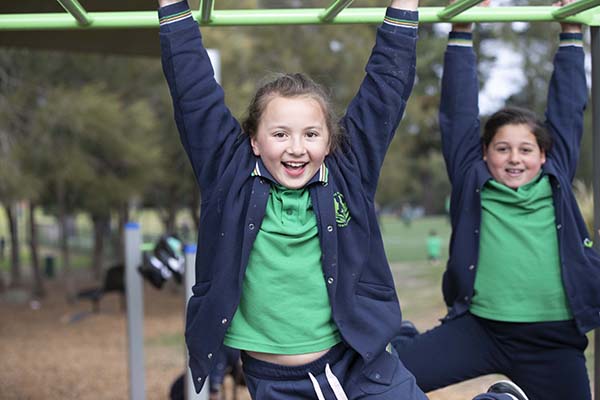Overview
Alignment with Be You Domains
-
Learning Resilience
Alignment with Early Years Learning Framework (EYLF)
- Children are confident and involved learners
- Children are connected with and contribute to their world
- Children are effective communicators
- Children have a strong sense of identity
- Children have a strong sense of wellbeing
Alignment with Australian Curriculum
- Health and PE
Target audience
- Early learning
- Primary school
Target groups
- Individual
- Small group
- Whole class
- Whole school
Aims
URSTRONG's Friendology 101 curriculum aims to enhance the social and emotional learning and wellbeing of children through friendship skills. It explicitly teaches children a common language for confidently managing conflict and creating a culture rooted in respect and kindness. URSTRONG strives to empower boys and girls with the skills and self-confidence to develop healthier relationships. URSTRONG works with parents and educators to ensure a whole-school approach.Program theory
URSTRONG draws on cognitive behavioural therapy (CBT) and the Collaborative for Academic, Social and Emotional Learning's (CASEL) model of the 5 social and emotional learning competencies (self-awareness, social awareness, self-management, responsible decision-making, and relationship skills) to help children develop healthier relationships. The PERMA model (Seligman) is referenced and reflected throughout the Friendology 101 curriculum. The EYLF (Early Years Learning Framework) underpins the F101 Junior curriculum.Topics
The program covers topics such as developing and maintaining friendships, putting a voice to feelings, conflict resolution, respect and thinking about others' feelings, communication (e.g. active listening) and managing difficult situations (e.g. birthday party invitations, saying 'no').Cost
Program structure
There are 8 sequential sessions (50 to 60 minutes) but this can be flexible.Instructor
- External facilitator
- Educator
- Wellbeing leader
Instructor training
URSTRONG’s Friendology 101 educator-training is a series of 4 x 90-minute sessions online. This can also be delivered in schools as a full-day, whole-staff training event.Supporting resources or materials available with program
- Manual
- Online webinars
- Posters
- Workbook
Ongoing support
All of the above together with one-on-one support for each school context.Parent involvement
Not provided
Origin of program
Australia
URSTRONG Pty Ltd
Program authors
Dana Kerford
Ratings
Summary of evidence factors
This is a summary of the evaluation or research study characteristics that contribute to the program’s evidence rating.
|
Positive impact on at least one outcome for children and/or young people?
The study reported positive outcomes. |
No |
|---|---|
|
Link between program description and theory of change
Theory of change refers to whether there was a comprehensive description and illustration of how and why a desired change is expected to happen in a particular context. |
Comprehensive |
|
Study design
Type of study design reported. |
Quasi-experimental |
|
Independence
The degree to which the program authors were involved in the research. |
Completely |
Summary of implementation factors
This is a summary of the program’s characteristics that contribute to its implementation rating.
|
Feedback sought from participants
Participants enjoyed the program and understood its benefits. |
Yes |
|---|---|
|
Feedback sought from instructors
Instructors enjoyed the program and understood its benefits. |
Yes |
|
Groups program is not suitable for
Groups the program wouldn't be suitable for or that required further research to determine suitability. |
Not assessed |
|
Training provided during study
The model of training provided. |
Face to face, all instructors, in person |
|
Ongoing instructor support provided during study
Whether ongoing support is provided. |
Yes |
Context
This is a summary of the context in which the evidence for the program was established.
|
Study Participants
Pre school, primary school (Foundation to Year 6), secondary school (Years 7 to 12). |
Primary school |
|---|---|
|
Country of Study/s
The location in which the evidence or research was conducted. |
Australia |
|
Location of Study/s in Australia
The state (or states) the program was assessed in Australia. |
NSW |
|
Evaluation of program in culturally and linguistically diverse populations
Provider has included culturally and linguistically diverse people when assessing the program. |
No |
|
Evaluation of program in Aboriginal and Torres Strait Islander children and young people
Provider has included Aboriginal and Torres Strait Islander peoples when assessing the program. |
No |
|
Evaluation of program in low socioeconomic groups
Program has evaluated a diverse socio-economic population in their research. |
No |
|
Developmental based adaptations to program design and delivery
Shorter sessions for younger students or activities are adjusted for age appropriateness. |
No |
|
Evaluation of program in children and young people with disability and/or learning difference
Provider has included participants with a disability or learning difference when assessing the program. |
No |
Last updated: 24 November 2021
